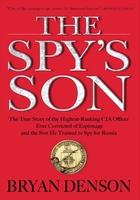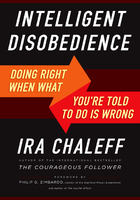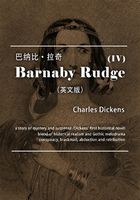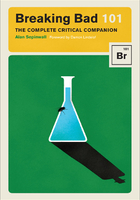It seemed very long before Mr. Gibson came down. He went and stood with his back to the empty fireplace, and did not speak for a minute or two.
'He's gone to bed,' said he at length. 'Robinson and I have got him there. But just as I was leaving him he called me back, and asked me to let you stop. I'm sure I don't know—but one doesn't like to refuse at such a time.'
'I wish to stay,' said Molly.
'Do you? There's a good girl. But how will you manage?'
'Oh, never mind that. I can manage. Papa,'—she paused—what did Osborne die of?' She asked the question in a low, awe-stricken voice.
'Something wrong about the heart. You wouldn't understand if I told you. I apprehended it for some time; but it is better not to talk of such things at home. When I saw him on Thursday week, he seemed better than I have seen him for a long time. I told Dr Nicholls so. But one never can calculate in these complaints.'
'You saw him on Thursday week? Why, you never mentioned it!' said Molly.
'No. I don't talk of my patients at home, Besides, I didn't want him to consider me as his doctor, but as a friend. Any alarm about his own health would only have hastened the catastrophe.'
'Then didn't he know that he was ill—ill of a dangerous complaint, I mean, one that might end as it has done?'
'No; certainly not. He would only have been watching his symptoms— accelerating matters, in fact.'
'Oh, papa!' said Molly, shocked.
'I've no time to go into the question,' Mr. Gibson continued. 'And until you know what has to be said on both sides, and in every instance, you are not qualified to judge. We must keep our attention on the duties in hand now. You sleep here for the remainder of the night, which is more than half-gone already?'
'Yes.'
'Promise me to go to bed just as usual. You may not think it, but most likely you'll go to sleep at once. People do at your age.'
'Papa, I think I ought to tell you something. I know a great secret of Osborne's, which I promised solemnly not to tell; but the last time I saw him I think he must have been afraid of something like this.' A fit of sobbing came upon her, which her father was afraid would end in hysterics. But suddenly she mastered herself, and looked up into his anxious face, and smiled to reassure him.
'I could not help it, papa!'
'No. I know. Go on with what you were saying. You ought to be in bed; but if you have a secret on your mind you won't sleep.'
'Osborne was married,' said she, fixing her eyes on her father. 'That is the secret.'
'Married! Nonsense. What makes you think so?'
'He told me. That's to say, I was in the library—was reading there, some time ago; and Roger came and spoke to Osborne about his wife. Roger did not see me, but Osborne did. They made me promise secrecy. I don't think I did wrong.'
'Don't worry yourself about right or wrong just now; tell me more about it, at once.'
'I knew no more till six months ago—last November, when you went up to Lady Cumnor. Then he called, and gave me his wife's address, but still under promise of secrecy; and, excepting those two times, I have never heard any one mention the subject. I think he would have told me more that last time, only Miss Phoebe came in.'
'Where is this wife of his?'
'Down in the south; near Winchester, I think. He said she was a Frenchwoman and a Roman Catholic; and I think he said she was a servant,' added Molly.
'Phew!' Her father made a long whistle of dismay.
'And,' continued Molly, 'he spoke of a child. Now you know as much as I do, papa, except the address. I have it written down safe at home.'
Forgetting, apparently, what time of night it was, Mr. Gibson sate down, stretched out his legs before him, put his hands in his pockets, and began to think. Molly sate still without speaking, too tired to do more than wait.
'Well!' said he at last, jumping up, 'nothing can be done to-night; by to-morrow morning, perhaps, I may find out. Poor little pale face!'— taking it between both his hands and kissing it; 'poor, sweet, little pale face!' Then he rang the bell, and told Robinson to send some maid- servant to take Miss Gibson to her room.
'He won't be up early,' said he, in parting. 'The shock has lowered him too much to be energetic. Send breakfast up to him in his own room. I'll be here again before ten.'
Late as it was before he left, he kept his word.
'Now, Molly,' he said, 'you and I must tell him the truth between us. I don't know how he will take it; it may comfort him, but I have very little hope: either way, he ought to know it at once.'
'Robinson says he has gone into the room again, and he is afraid he has locked the door on the inside.'
'Never mind. I shall ring the bell, and send up Robinson to say that I am here, and wish to speak to him.'
The message returned was, 'The squire's kind love, and could not see Mr. Gibson just then.' Robinson added, 'It was a long time before he'd answer at all, sir.'
'Go up again, and tell him I can wait his convenience. Now that's a lie,' Mr. Gibson said, turning round to Molly as soon as Robinson had left the room. 'I ought to be far enough away at twelve; but, if I'm not much mistaken, the innate habits of a gentleman will make him uneasy at the idea of keeping me waiting his pleasure, and will do more to bring him out of that room into this than any entreaties or reasoning.' Mr. Gibson was growing impatient though, before they heard the squire's footstep on the stairs; he was evidently coming slowly and unwillingly. He came in almost like one blind, groping along, and taking hold of chair or table for support or guidance till he reached Mr. Gibson. He did not speak when he held the doctor by the hand; he only hung down his head, and kept on a feeble shaking of welcome.
'I'm brought very low, sir. I suppose it's God's doing; but it comes hard upon me. He was my firstborn child.' He said this almost as if speaking to a stranger, and informing him of facts of which he was ignorant.
'Here's Molly,' said Mr. Gibson, choking a little himself, and pushing her forwards.
'I beg your pardon; I did not see you at first. My mind is a good deal occupied just now.' He sate heavily down, and then seemed almost to forget they were there. Molly wondered what was to come next. Suddenly her father spoke,—
'Where's Roger?' said he. 'Is he not likely to be soon at the Cape?' He got up and looked at the directions of one or two unopened letters brought by that morning's post; among them was one in Cynthia's handwriting. Both Molly and he saw it at the same time. How long it was since yesterday! But the squire took no notice of their proceedings or their looks.
'You will be glad to have Roger at home as soon as may be, I think, sir. Some months must elapse first; but I'm sure he will return as speedily as possible.'
The squire said something in a very low voice. Both father and daughter strained their ears to hear what it was. They both believed it to be, 'Roger is not Osborne!' And Mr. Gibson spoke on that belief. He spoke more quietly than Molly had ever heard him do before.
'No! we know that. I wish that anything that Roger could do, or that I could do, or that any one could do, would comfort you; but it is past human comfort.'
'I do try to say, God's will be done, sir,' said the squire, looking up at Mr. Gibson for the first time, and speaking with more life in his voice; 'but it is harder to be resigned than happy people think.' They were all silent for a while. The squire himself was the first to speak again,—'He was my first child, sir; my eldest son. And of late years we weren't'—his voice broke down, but he controlled himself—'we weren't quite as good friends as could be wished; and I'm not sure—not sure that he knew how I loved him.' And now he cried aloud with an exceeding bitter cry.
'Better so!' whispered Mr. Gibson to Molly. 'When he is a little calmer, don't be afraid; tell him all you know, exactly as it happened.'
Molly began. Her voice sounded high and unnatural to herself, as if some one else was speaking, but she made her words clear. The squire did not attempt to listen, at first, at any rate.
'One day when I was here, at the time of Mrs. Hamley's last illness' (the squire here checked his convulsive breathing), 'I was in the library, and Osborne came in. He said he had only come in for a book, and that I was not to mind him, so I went on reading. Presently, Roger came along the flagged garden-path just outside the window (which was open). He did not see me in the corner where I was sitting, and said to Osborne, "Here's a letter from your wife!"'
Now the squire was all attention; for the first time his tear-swollen eyes met the eyes of another, and he looked at Molly with searching anxiety, as he repeated, 'His wife! Osborne married!' Molly went on,—
'Osborne was angry with Roger for speaking out before me, and they made me promise never to mention it to any one; or to allude to it to either of them again. I never named it to papa till last night.'
'Go on,' said Mr. Gibson. 'Tell the squire about Osborne's call,—what you told me!' Still the squire hung on her lips, listening with open mouth and eyes.
'Some months ago Osborne called. He was not well, and wanted to see papa. Papa was away, and I was alone. I don't exactly remember how it came about, but he spoke to me of his wife for the first and only time since the affair in the library.' She looked at her father, as if questioning him as to the desirableness of telling the few further particulars that she knew. The squire's mouth was dry and stiff, but he tried to say, 'Tell me all,—everything.' And Molly understood the half-formed words.
'He said his wife was a good woman, and that he loved her dearly; but she was a French Roman Catholic, and a'—another glance at her father— 'she had been a servant once. That was all; except that I have her address at home. He wrote it down and gave it me.'
'Well, well!' moaned the squire. 'It's all over now. All over. All past and gone. We'll not blame him,—no; but I wish he'd a told me; he and I to live together with such a secret in one of us. It's no wonder to me now—nothing can be a wonder again, for one never can tell what's in a man's heart. Married so long! and we sitting together at meals—and living together. Why, I told him everything! Too much, may be, for I showed him all my passions and ill-tempers! Married so long! Oh, Osborne, Osborne, you should have told me!'
'Yes, he should!' said Mr. Gibson. 'But I daresay he knew how much you would dislike such a choice as he had made. But he should have told you!'
'You know nothing about it, sir,' said the squire sharply. 'You don't know the terms we were on. Not hearty or confidential. I was cross to him many a time, angry with him for being dull, poor lad—and he with all this weight on his mind. I won't have people interfering and judging between me and my sons. And Roger too! He could know it all, and keep it from me!'
'Osborne evidently had bound him down to secrecy, just as he bound me,' said Molly; 'Roger could not help himself.'
'Osborne was such a fellow for persuading people, and winning them over,' said the squire, dreamily. 'I remember—but what's the use of remembering? It's all over, and Osborne is dead without opening his heart to me. I could have been tender to him, I could. But he'll never know it now!'
'But we can guess what wish he had strongest in his mind at the last, from what we do know of his life.' said Mr. Gibson.
'What, sir?' said the squire, with sharp suspicion of what was coming.
'His wife must have been his last thought, must she not?'
'How do I know she was his wife? Do you think he'd go and marry a French baggage of a servant? It may be all a tale trumped up.'
'Stop, squire. I don't care to defend my daughter's truth or accuracy. But with the dead man's body lying upstairs—his soul with God—think twice before you say more hasty words, impugning his character; if she was not his wife, what was she?'
'I beg your pardon. I hardly know what I am saying. Did I accuse Osborne? Oh, my lad, my lad—thou might have trusted thy old dad! He used to call me his "old dad" when he was a little chap not bigger than this,' indicating a certain height with his hand. 'I never meant to say he was not—not what one would wish to think him now—his soul with God, as you say very justly—for I am sure it is there—'
'Well! but, squire,' said Mr. Gibson, trying to check the other's rambling, 'to return to his wife—'
'And the child,' whispered Molly to her father. Low as the whisper was, it struck on the squire's ear.
'What?' said he, turning round to her suddenly, '—child! You never named that? Is there a child? Husband and father, and I never knew! God bless Osborne's child! I say, God bless it!' He stood up reverently, and the other two instinctively rose. He closed his hands as if in momentary prayer. Then exhausted he sate down again, and put out his hand to Molly.
'You're a good girl. Thank you. Tell me what I ought to do, and I'll do it.' This to Mr. Gibson.
'I am almost as much puzzled as you are, squire,' replied he. 'I fully believe the whole story; but I think there must be some written confirmation of it, which perhaps ought to be found at once, before we act. Most probably this is to be discovered among Osborne's papers. Will you look over them at once? Molly shall return with me, and find the address that Osborne gave her, while you are busy—'
'She'll come back again?' said the squire eagerly. 'You—she won't leave me to myself?'
'No! She shall come back this evening. I'll manage to send her somehow. But she has no clothes but the habit she came in, and I want my horse that she rode away upon.'
'Take the carriage,' said the squire. 'Take anything. I'll give orders. You'll come back again, too?'
'No! I'm afraid not, to-day. I'll come to-morrow, early. Molly shall return this evening, whenever it suits you to send for her.'
'This afternoon; the carriage shall be at your house at three. I dare not look at Osborne's—at the papers without one of you with me; and yet I shall never rest till I know more.'
'I will send the desk in by Robinson before I leave. And—can you give me some lunch before I go?'
Little by little he led the squire to eat a morsel or so of food; and so, strengthening him physically, and encouraging him mentally, Mr. Gibson hoped that he would begin his researches during Molly's absence.
There was something touching in the squire's wistful looks after Molly as she moved about. A stranger might have imagined her to be his daughter instead of Mr. Gibson's. The meek, broken-down, considerate ways of the bereaved father never showed themselves more strongly than when he called them back to his chair, out of which he seemed too languid to rise, and said, as if by an after-thought,—'Give my love to Miss Kirkpatrick; tell her I look upon her as quite one of the family. I shall be glad to see her after—after the funeral. I don't think I can before.'
'He knows nothing of Cynthia's resolution to give up Roger,' said Mr Gibson as they rode away. 'I had a long talk with her last night, but she was as resolute as ever. From what your mamma tells me, there is a third lover in London, whom she's already refused. I'm thankful that you've no lover at all, Molly, unless that abortive attempt of Mr. Coxe's at an offer, long ago, can be called a lover.'
'I never heard of it, papa,' said Molly.
'Oh, no. I forgot. What a fool I was! Why, don't you remember the hurry I was in to get you off to Hamley Hall, the very first time you ever went? It was all because I got hold of a desperate love-letter from Coxe, addressed to you.'
But Molly was too tired to be amused, or even interested. She could not get over the sight of the straight body covered with a sheet, which yet let the outlines be seen,—all that remained of Osborne. Her father had trusted too much to the motion of the ride, and the change of scene from the darkened house. He saw his mistake.
'Some one must write to Mrs. Osborne Hamley,' said he. 'I believe her to have a legal right to the name; but whether or no, she must be told that the father of her child is dead. Shall you do it, or I?'
'Oh, you, please, papa!'
'I will, if you wish, But she may have heard of you as a friend of her dead husband's; while of me—a mere country doctor—it's very probable she has never heard the name.'
'If I ought, I will do it.' Mr. Gibson did not like this ready acquiescence, given in so few words, too.
'There's Hollingford church-spire,' said she presently, as they drew near the town, and caught a glimpse of the church through the trees. 'I think I never wish to go out of sight of it again.'
'Nonsense!' said he. 'Why, you've all your travelling to do yet; and if these newfangled railways spread, as they say they will, we shall all be spinning about the world; "sitting on tea-kettles," as Phoebe Browning calls it. Miss Browning wrote such a capital letter of advice to Miss Hornblower. I heard of it at the Millers'. Miss Hornblower was going to travel by railroad for the first time; and Sally was very anxious, and sent her directions for her conduct; one piece of advice was not to sit on the boiler.'
Molly laughed a little, as she was expected to do.
'Here we are at home, at last.'
Mrs. Gibson gave Molly a warm welcome. For one thing, Cynthia was in disgrace; for another, Molly came from the centre of news; for a third, Mrs. Gibson was really fond of the girl, in her way, and sorry to see her pale heavy looks.
'To think of it all being so sudden at last! Not but what I always expected it! And so provoking! Just when Cynthia had given up Roger! If she had only waited a day! What does the squire say to it all?'
'He is beaten down with grief,' replied Molly.
'Indeed! I should not have fancied he had liked the engagement so much.'
'What engagement?'
'Why, Roger to Cynthia, to be sure. I asked you how the squire took her letter, announcing the breaking of it off?'
'Oh—I made a mistake. He has not opened his letters to-day. I saw Cynthia's among them.'
'Now that I call positive disrespect.'
'I don't know. He did not mean it for such. Where is Cynthia?'
'Gone out into the meadow-garden. She'll be in directly. I wanted her to do some errands for me, but she flatly refused to go into the town. I am afraid she mismanages her affairs sadly. But she won't allow me to interfere. I hate to look at such things in a mercenary spirit, but it is provoking to see her throw over two such good matches. First Mr. Henderson, and now Roger Hamley. When does the squire expect Roger? Does he think he will come back sooner for poor dear Osborne's death?'
'I don't know. He hardly seems to think of anything but Osborne. He seems to me to have almost forgotten every one else. But perhaps the news of Osborne's being married, and of the child, may rouse him up.'
Molly had no doubt that Osborne was really and truly married, nor had she any idea that her father had never breathed the facts of which she had told him on the previous night, to his wife or Cynthia. But Mr. Gibson had been slightly dubious of the full legality of the marriage, and had not felt inclined to speak of it to his wife until that had been ascertained one way or another. So Mrs. Gibson exclaimed, 'What do you mean, child? Married! Osborne married. Who says so?'
'Oh, dear! I suppose I ought not to have named it. I am very stupid to- day. Yes! Osborne has been married a long time; but the squire did not know of it until this morning. I think it has done him good. But I don't know.'
'Who is the lady? Why, I call it a shame to go about as a single man, and be married all the time! If there is one thing that revolts me, it is duplicity. Who is the lady? Do tell me all you know about it, there's a dear.'
'She is French, and a Roman Catholic,' said Molly.
'French! They are such beguiling women; and he was so much abroad! You said there was a child,—is it a boy or girl?'
'I did not hear. I did not ask.'
Molly did not think it necessary to do more than answer questions; indeed, she was vexed enough to have told anything of what her father evidently considered it desirable to keep secret. Just then Cynthia came wandering into the room with a careless, hopeless look in her face, which Molly noticed at once. She had not heard of Molly's arrival, and had no idea that she was returned until she saw her sitting there.
'Molly, darling! Is that you? You're as welcome as the flowers in May, though you've not been gone twenty-four hours. But the house is not the same when you are away!'
'And she brings us such news too!' said Mrs. Gibson. 'I'm really almost glad you wrote to the squire yesterday, for if you had waited till to- day—I thought you were in too great a hurry at the time—he might have thought you had some interested reason for giving up your engagement. Osborne Hamley was married all this time unknown to everybody, and has got a child too.'
'Osborne married!' exclaimed Cynthia. 'If ever a man looked a bachelor, he did. Poor Osborne! with his fair delicate elegance,—he looked so young and boyish!'
'Yes! it was a great piece of deceit, and I can't easily forgive him for it. Only think! If he had paid either of you any particular attention, and you had fallen in love with him! Why, he might have broken your heart, or Molly's either. I can't forgive him, even though he is dead, poor fellow!'
Well, as he never did pay either of us any particular attention, and as we neither of us did fall in love with him, I think I only feel sorry that he had all the trouble and worry of concealment.' Cynthia spoke with a pretty keen recollection of how much trouble and worry her concealment had cost her.
'And now of course it is a son, and will be the heir, and Roger will just be as poorly off as ever. I hope you'll take care and let the squire know Cynthia was quite ignorant of these new facts that have come out when she wrote those letters, Molly? I should not like a suspicion of worldliness to rest upon any one with whom I had any concern.'
'He has not read Cynthia's letter yet. Oh, do let me bring it home unopened,' said Molly. 'Send another letter to Roger—now—at once; it will reach him at the same time; he will get both when he arrives at the Cape, and make him understand which is the last—the real one. Think! he will hear of Osborne's death at the same time—two such sad things! Do, Cynthia!'
'No, my dear,' said Mrs. Gibson. 'I could not allow that, even if Cynthia felt inclined for it. Asking to be re-engaged to him! At any rate, she must wait now until he proposes again, and we see how things turn out.'
But Molly kept her pleading eyes fixed on Cynthia.
'No!' said Cynthia firmly, but not without consideration. 'It cannot be. I have felt more content this last night than I have done for weeks past. I am glad to be free. I dreaded Roger's goodness, and learning, and all that. It was not in my way, and I don't believe I should have ever married him, even without knowing of all these ill-natured stories that are circulating about me, and which he would hear of, and expect me to explain, and be sorry for, and penitent and humble. I know he could not have made me happy, and I don't believe he would have been happy with me. It must stay as it is. I would rather be a governess than married to him. I should get weary of him every day of my life.'
'Weary of Roger!' said Molly to herself. 'It is best as it is, I see,' she answered aloud. 'Only I am very sorry for him, very. He did love you so. You will never get any one to love you like him!'
'Very well. I must take my chance. And too much love is rather oppressive to me, I believe. I like a great deal, widely spread about; not all confined to one individual lover.'
'I don't believe you,' said Molly. 'But don't let us talk any more about it. It is best as it is. I thought—I almost felt sure you would be sorry this morning. But we will leave it alone now.' She sate silently looking out of the window, her heart sorely stirred, she scarcely knew how or why. But she could not have spoken. Most likely she would have begun to cry if she had spoken. Cynthia stole softly up to her after a while.
'You are vexed with me, Molly,' she began in a low voice. But Molly turned sharply round.
'I! I have no business at all in the affair. It is for you to judge. Do what you think right. I believe you have done right. Only I don't want to discuss it, and paw it over with talk. I am very much tired, dear'— gently now she spoke,—'and I hardly know what I say. If I speak crossly, don't mind it.' Cynthia did not reply at once. Then she said,—
'Do you think I might go with you, and help you? I might have done yesterday; and you say he has not opened my letter, so he has not heard as yet. And I was always fond of poor Osborne, in my way, you know.'
'I cannot tell; I have no right to say,' replied Molly, scarcely understanding Cynthia's motives, which, after all, were only impulses in this case. 'Papa would be able to judge; I think, perhaps, you had better not. But don't go by my opinion, I can only tell what I should wish to do in your place.'
'It was as much for your sake as any one's, Molly,' said Cynthia.
'Oh, then, don't! I am tired to-day with sitting up; but to-morrow I shall be all right; and I should not like it, if, for my sake, you came into the house at so solemn a time.'
'Very well!' said Cynthia, half-glad that her impulsive offer was declined; for, as she said, thinking to herself, 'It would have been awkward after all,' So Molly went back in the carriage alone, wondering how she should find the squire, wondering what discoveries he had made among Osborne's papers; and at what conviction he would have arrived.















